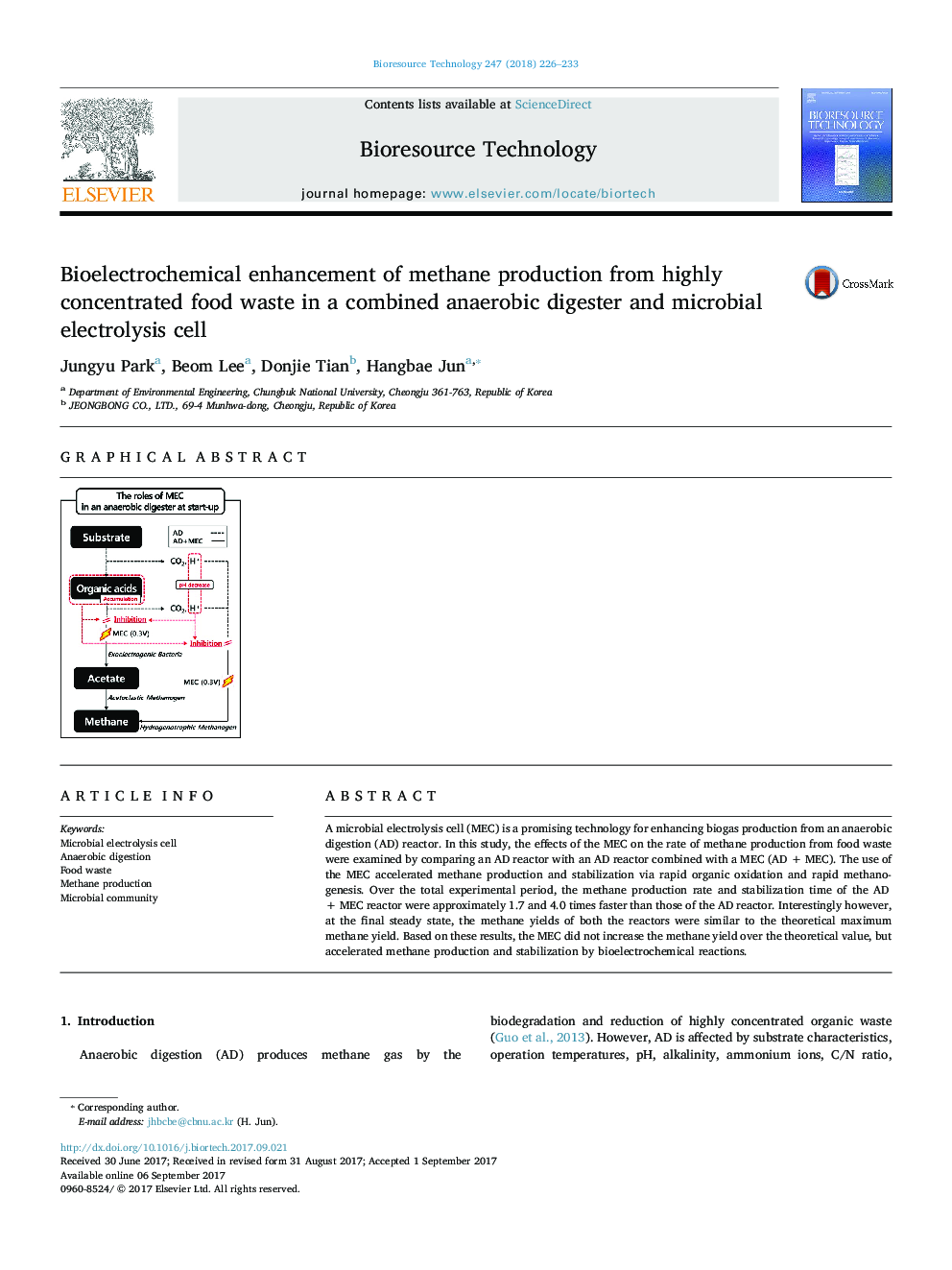| کد مقاله | کد نشریه | سال انتشار | مقاله انگلیسی | نسخه تمام متن |
|---|---|---|---|---|
| 4996643 | 1459897 | 2018 | 8 صفحه PDF | دانلود رایگان |
- Steady-state methane production of AD and ADÂ +Â MEC was near the theoretical maximum.
- MEC can accelerate the methane production rate and stabilization.
- MEC promotes the conversion of hydrogen ions and volatile fatty acids to methane.
- ADÂ +Â MEC showed better organic matter removal via increased exoelectrogenic bacteria.
- MEC eliminates factors inhibiting acetoclastic methanogenesis in bulk.
A microbial electrolysis cell (MEC) is a promising technology for enhancing biogas production from an anaerobic digestion (AD) reactor. In this study, the effects of the MEC on the rate of methane production from food waste were examined by comparing an AD reactor with an AD reactor combined with a MEC (ADÂ +Â MEC). The use of the MEC accelerated methane production and stabilization via rapid organic oxidation and rapid methanogenesis. Over the total experimental period, the methane production rate and stabilization time of the ADÂ +Â MEC reactor were approximately 1.7 and 4.0 times faster than those of the AD reactor. Interestingly however, at the final steady state, the methane yields of both the reactors were similar to the theoretical maximum methane yield. Based on these results, the MEC did not increase the methane yield over the theoretical value, but accelerated methane production and stabilization by bioelectrochemical reactions.
117
Journal: Bioresource Technology - Volume 247, January 2018, Pages 226-233
